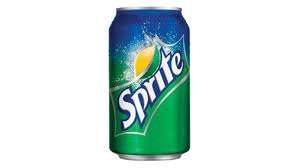October 9, 2013 report
Chinese team finds drinking Sprite might help prevent hangover

(Phys.org) —A team of Chinese researchers working at Sun Yat-Sen University has found a possible way for drinkers of alcoholic beverages to minimize their risk of developing a hangover and other negative side-effects: consume Sprite. In their paper published in the journal Food & Function, the team describes how they tested a host of beverages to determine which best boosts the production of an enzyme that breaks down acetaldehyde, a harmful chemical that is created as the body breaks down alcohol.
Human beings have likely been looking for ways to cure the negative side-effects of consuming alcohol since first stumbling across the fermentation process. Symptoms such as an aching head, dry mouth and sensitivity to noise have been the sad result of untold numbers of nights spent drinking. Unfortunately, none of the remedies discovered thus far have proven to be of much help. That may change soon, if the team in China is right. Drinking Sprite they say, just might build up a good enzyme that helps to get a bad chemical out of the body as quickly as possible.
The team in China based their study on other research that has found that when people drink an alcoholic beverage, the body undertakes a two-step process in dealing with the alcohol in it. First, an enzyme called alcohol dehydrogenase (ADH) sets to work to breaking the alcohol down into acetaldehyde. Next, another enzyme, called aldehyde dehydrogenase (ALDH) breaks it down further into acetate. It's the first step, apparently, that causes problems—it's acetaldehyde that causes the brain to swell leading to hangover pain. The team in China believes that chemicals that cause an increase in ALDH should help alleviate the problem by getting rid of the acetaldehyde faster—before it can cause brain swelling. But rather than working up a new drug, they looked at commercially available beverages to find out if any of them might do so naturally. They tested 57 different beverages ranging from teas to soft drinks—of all of those tested, Sprite (called Xue bi in China) performed the best.
The team hasn't yet begun testing the use of Sprite to prevent a hangover in actual human subjects just yet, but indicate they are making plans to do so. They may not have to, of course, as news of their research will almost certainly lead to widespread testing of the soft-drink as a hangover preventative technique by large numbers of drinkers worldwide.
More information: Effects of Herbal Infusion, Tea and Carbonated Beverage on Alcohol Dehydrogenase and Aldehyde Dehydrogenase Activities, Food Funct., 2013, Accepted Manuscript, DOI: 10.1039/C3FO60282F
Abstract
Various alcoholic beverages containing different concentrations of ethanol are widely consumed, and excessive alcohol consumption may result in serious health problem. The consumption of alcohol beverages is often accompanied by non-alcohol beverages, such as herbal infusion, tea and carbonated beverage to relieve drunk symptoms. The aim of this study was to supply new information on effects of these beverages on alcohol metabolism for nutritionists and the general public to reduce harm of excessive alcohol consumption. Effects of 57 kinds of herbal infusion, tea and carbonated beverages on alcohol dehydrogenase and aldehyde dehydrogenase activities were evaluated. Generally, effects of these beverages on alcohol dehydrogenase and aldehyde dehydrogenase activities are very different. The results suggested that some beverages should not be drunk after excessive alcohol consumption, and several beverages may be potential dietary supplement for the prevention and treatment of harm from excessive alcohol consumption.
© 2013 Phys.org















